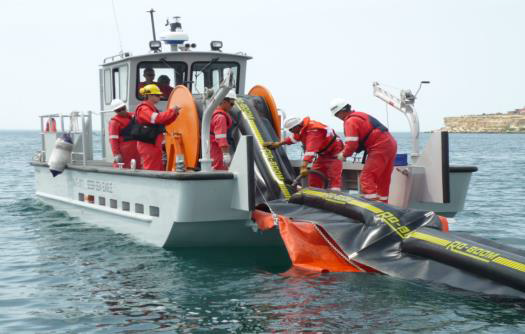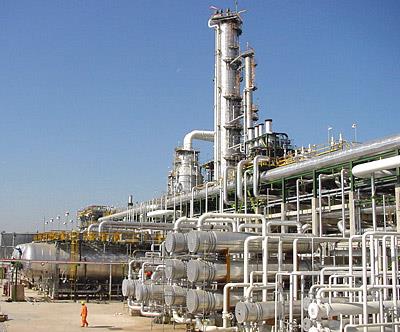COURSE OVERVIEW
HE1717 : HAZWOPER: Hazardous Waste Operations and Emergency Response

OVERVIEW
| COURSE TITLE | : | HE1717 : HAZWOPER: Hazardous Waste Operations and Emergency Response |
| COURSE DATE | : | Oct 20 - Oct 24 2024 |
| DURATION | : | 5 Days |
| INSTRUCTOR | : | Mr. John Burnip |
| VENUE | : | Istanbul, Turkey |
| COURSE FEE | : | $ 6000 |
| Request For Course | ||
Course Description
This course is designed to provide participants with a detailed and up-to-date overview of Hazardous Waste Operations and Emergency Response (HAZWOPER). It covers the standard and scope of HAZWOPER and relevant OSHA regulations, including 29 CFR 1910.120; the elements of an effective health and safety program, planning and implementation; the chemical, biological, and physical hazards in hazardous waste operations; the risks associated with hazardous substances; the types, selection criteria, proper use and maintenance of PPE; and the hazardous waste sites, preliminary assessment and site inspection.
Further, the course will also discuss the chemical properties, toxicology, and exposure routes; the techniques and tools for air monitoring, including direct-reading instruments and sampling methods; the respiratory protection, decontamination procedure and site control; the methods and best practices for handling, storage, and transportation; the techniques for safe drum handling, sampling methods, and considerations; the emergency response plans for hazardous waste operations; and the techniques and equipment used for containing spills of hazardous substances.
During this interactive course, participants will learn to manage the incidents involving unidentified hazardous substances; the ICS structure, roles, and responsibilities in emergency response; the hazardous waste and strategies for minimizing waste generation; the environmental laws and regulations, remediation technologies and water and soil decontamination; the EPCRA requirements and the importance of community awareness and preparedness; the health effects of exposure to hazardous substances; the elements of a medical surveillance program for workers exposed to hazardous substances; managing stress during emergency response operations and preventing heat and cold stress in hazardous waste operations; and the safety procedures and regulations for working in confined spaces.
Further, the course will also discuss the chemical properties, toxicology, and exposure routes; the techniques and tools for air monitoring, including direct-reading instruments and sampling methods; the respiratory protection, decontamination procedure and site control; the methods and best practices for handling, storage, and transportation; the techniques for safe drum handling, sampling methods, and considerations; the emergency response plans for hazardous waste operations; and the techniques and equipment used for containing spills of hazardous substances.
During this interactive course, participants will learn to manage the incidents involving unidentified hazardous substances; the ICS structure, roles, and responsibilities in emergency response; the hazardous waste and strategies for minimizing waste generation; the environmental laws and regulations, remediation technologies and water and soil decontamination; the EPCRA requirements and the importance of community awareness and preparedness; the health effects of exposure to hazardous substances; the elements of a medical surveillance program for workers exposed to hazardous substances; managing stress during emergency response operations and preventing heat and cold stress in hazardous waste operations; and the safety procedures and regulations for working in confined spaces.
TRAINING METHODOLOGY
This interactive training course includes the following training methodologies:
LecturesWorkshops & Work Presentations
Case Studies & Practical Exercises
Videos, Software & Simulators
In an unlikely event, the course instructor may modify the above training methodology for technical reasons.
VIRTUAL TRAINING (IF APPLICABLE)
If this course is delivered online as a Virtual Training, the following limitations will be applicable:
| Certificates | : | Only soft copy certificates will be issued |
| Training Materials | : | Only soft copy materials will be issued |
| Training Methodology | : | 80% theory, 20% practical |
| Training Program | : | 4 hours per day, from 09:30 to 13:30 |
RELATED COURSES

HE0794 : Oil Spill Management & Response (IMO OPRC Level 2)
- Date: Feb 02 - Feb 06 / 3 Days
- Location: Al Khobar, KSA
- Course Details Register

HE1022 : Introduction to Process Safety Management (PSM)
- Date: Feb 02 - Feb 06 / 3 Days
- Location: Dubai, UAE
- Course Details Register

HE0691 : Emergency Response and Crisis Management
- Date: Feb 02 - Feb 06 / 3 Days
- Location: Dubai, UAE
- Course Details Register

HE0150 : Safety Engineering & Risk Management
- Date: Feb 02 - Feb 06 / 3 Days
- Location: Dubai, UAE
- Course Details Register
